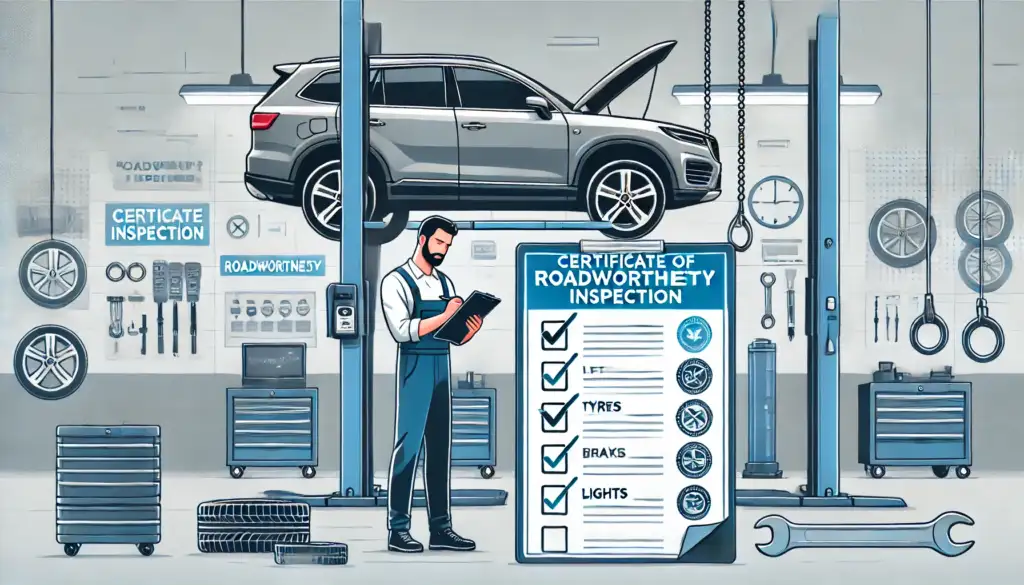The Ultimate Guide to Roadworthiness Certification: Ensuring Safety and Compliance
In these days’s rapid-paced international, avenue protection is paramount. Among the essential additives of maintaining safe and reliable cars is the roadworthiness certification system. As regulations tighten and consciousness will increase, obtaining a roadworthiness certificate has turn out to be a trending topic amongst car proprietors, fleet operators, and policymakers. This article delves deep into the concept of roadworthiness certification, its importance, technique, benefits, and often requested questions, using key trending terms for max relevance.

What is a Roadworthiness Certification?
A roadworthiness certificates (RWC), additionally referred to as a vehicle inspection certificate, is an authentic record that confirms a car meets the safety requirements required to perform on public roads. It ensures that critical components like brakes, tires, lights, and structural integrity are in premiere situation, reducing the chance of injuries and mechanical screw ups.
Whether you’re shopping for a used vehicle, selling your automobile, or registering your automobile in a new vicinity, having an up to date roadworthiness certificate is often mandatory.
Why is Roadworthiness Certification Important?
- Safety Assurance: A roadworthy vehicle minimizes the chance of injuries because of mechanical failures, making sure the safety of drivers, passengers, and pedestrians.
- Legal Compliance: In many nations, riding a automobile with out a valid RWC can bring about hefty fines or maybe confiscation of the vehicle.
- Environmental Protection: Modern roadworthiness inspections regularly encompass emissions trying out, making sure that automobiles make contributions minimally to air pollutants.
- Vehicle Resale Value: Selling a car with a valid RWC assures customers of its reliability, increasing its marketplace cost.
- Insurance Claims: Many coverage organizations require evidence of roadworthiness to manner claims efficaciously in case of accidents.
Key Components Inspected During Roadworthiness Certification
Roadworthiness inspections consciousness on numerous essential regions, which include:
- Braking Systems: Ensuring the braking additives are functioning efficiently.
- Steering and Suspension: Checking for put on and tear that could affect manipulate.
- Lights and Indicators: Verifying that each one lighting and indicators function correctly.
- Tires and Wheels: Ensuring proper tread depth, alignment, and tire situation.
- Chassis and Bodywork: Checking for structural harm or rust that might compromise protection.
- Exhaust and Emissions: Measuring pollutants to make sure compliance with environmental standards.
How to Obtain a Roadworthiness Certificate
Obtaining a roadworthiness certificate involves a scientific manner:
- Schedule an Inspection: Visit a licensed car inspection station or authorized mechanic.
- Pre-Inspection Maintenance: Address any recognized troubles earlier than the inspection to improve your chances of passing.
- Inspection Process: A licensed inspector will observe your car’s key additives.
- Certification or Repairs: If your car passes, you obtain the RWC. If now not, you’ll be supplied with a list of required repairs.
- Re-Inspection: After addressing the issues, your automobile will want to undergo some other inspection.

Costs and Duration of Roadworthiness Certification
The cost of a roadworthiness certificates varies relying at the area, automobile type, and inspection station. Generally, prices range between $50 to $a hundred and fifty for standard cars, however large cars like trucks may also incur higher fees. The inspection process commonly takes half-hour to an hour, furnished there are no enormous issues.
Digital Roadworthiness Certification: The Future is Here
With improvements in generation, many areas are moving closer to digital roadworthiness certificates. This paperless answer offers several benefits:
- Convenience: Easily accessible thru telephone apps or on line portals.
- Real-Time Updates: Instant updates on certificate repute and expiry.
- Reduced Fraud: Enhanced safety features to save you counterfeit certificates.
Common Challenges in Roadworthiness Certification
- Failing the Inspection: One of the most common challenges is failing because of minor troubles like faulty lighting or worn-out tires.
- Delays in Repairs: Finding reliable mechanics or sourcing parts can delay re-inspections.
- High Costs: For older automobiles, repair fees can once in a while outweigh the automobile’s fee.
Roadworthiness Certification Around the World
Different international locations have various requirements and practices for roadworthiness certification:
- United States: Known as the Vehicle Inspection Program, it varies via kingdom.
- United Kingdom: The MOT test is mandatory for vehicles over three years vintage.
- Australia: Referred to as a Certificate of Roadworthiness (CoR), it’s far vital for selling or re-registering vehicles.
- India: The health certificates (FC) is obligatory for all motors after a sure age.
Tips to Ensure Your Vehicle Passes the Roadworthiness Test
- Regular Maintenance: Routine servicing facilitates discover and solve capacity troubles early.
- Check Lights and Indicators: Replace faulty bulbs or fuses before the inspection.
- Monitor Tire Health: Ensure tires meet the criminal tread intensity requirements.
- Clean Your Vehicle: A clean automobile no longer simplest appears better but additionally lets in inspectors to assess components greater efficaciously.
- Inspect Brakes and Suspension: Ensure these critical structures are in true condition.
Benefits of Regular Roadworthiness Certification
- Peace of Mind: Knowing your automobile is in excellent situation.
- Prolonged Vehicle Lifespan: Regular inspections become aware of troubles before they expand, extending the car’s lifestyles.
- Reduced Operational Costs: Preventative preservation reduces the probability of expensive breakdowns.
- Environmental Benefits: Ensures your vehicle meets emission requirements.
FAQs on Roadworthiness Certification
Q1. How regularly is a roadworthiness certificate required?
It depends on the area. Some regions mandate annual inspections, whilst others require them best during vehicle income or re-registration.
Q2. Can I sell a vehicle with out a roadworthiness certificate?
In many jurisdictions, promoting a vehicle without an RWC is illegal. Always take a look at nearby regulations.
Q3. What happens if my car fails the inspection?
You might be supplied with a listing of issues to restoration. Once addressed, your car can be re-inspected.
Q4. Is roadworthiness certification similar to car registration?
No, roadworthiness certification specializes in protection, at the same time as car registration pertains to legal possession and street tax compliance.
Conclusion
Obtaining a roadworthiness certificates is not just a criminal responsibility however a vital step towards ensuring road protection and environmental sustainability. By understanding the system, adhering to upkeep schedules, and staying updated with nearby rules, vehicle proprietors can experience safer journeys whilst contributing to a greater steady and sustainable shipping environment.
With roadworthiness certification trending as a key subject matter in automotive discussions, staying informed and proactive is the nice way to make sure compliance and peace of mind. So, whether you’re a first-time car owner or a pro fleet operator, make roadworthiness certification a priority for a safer destiny.

